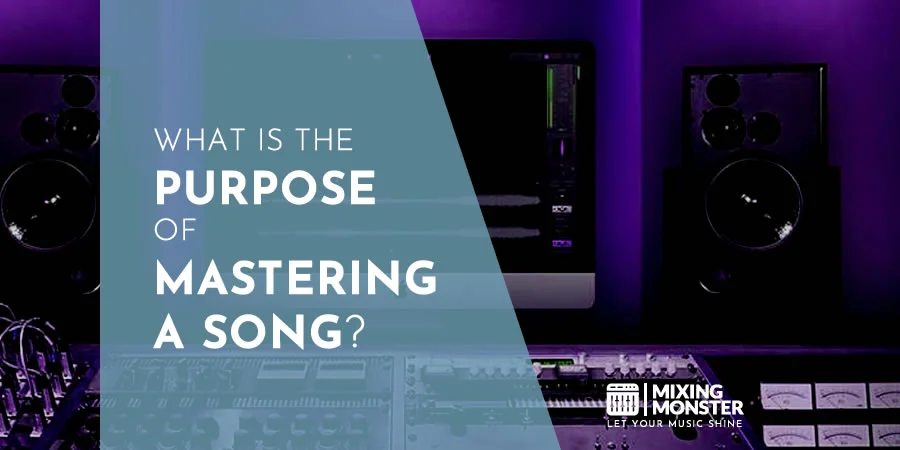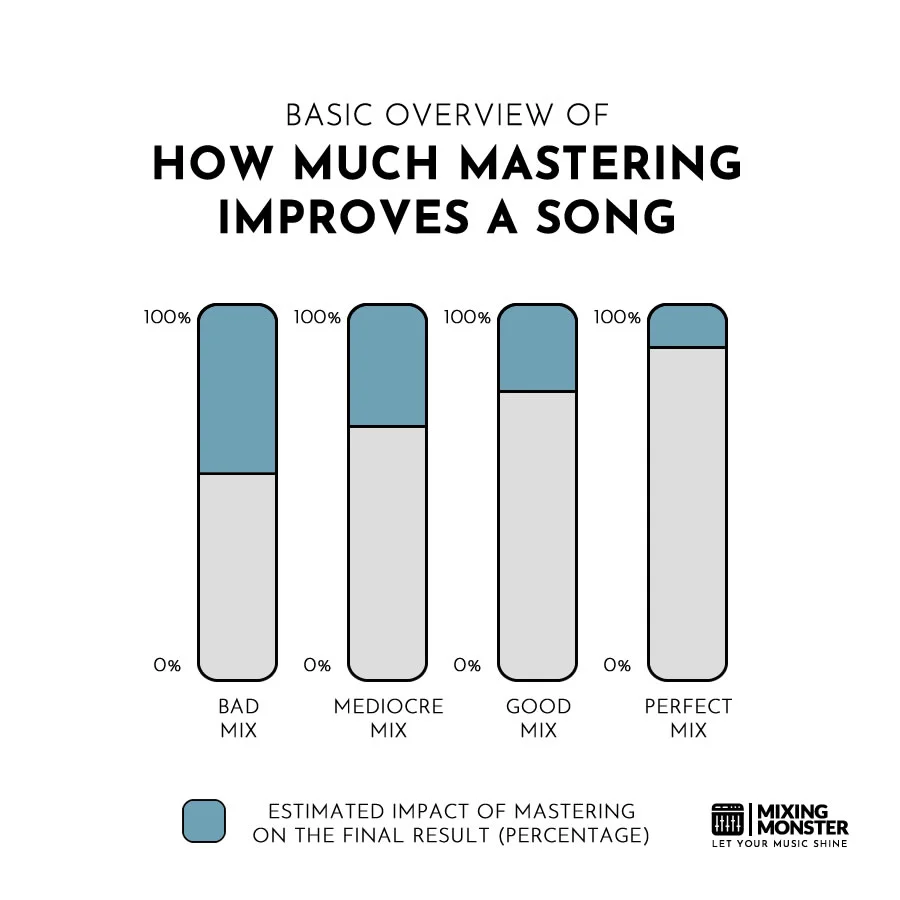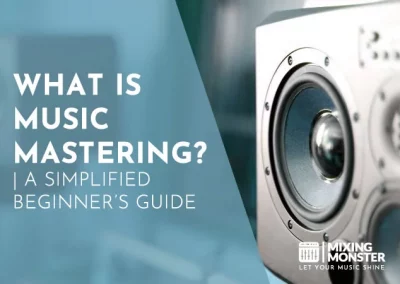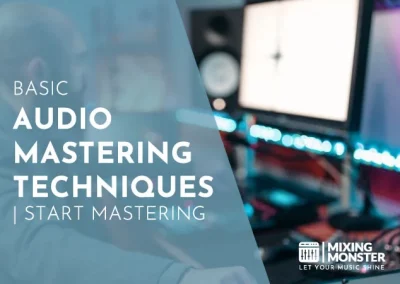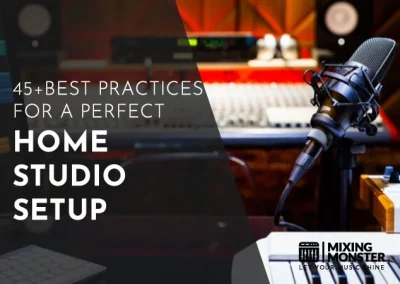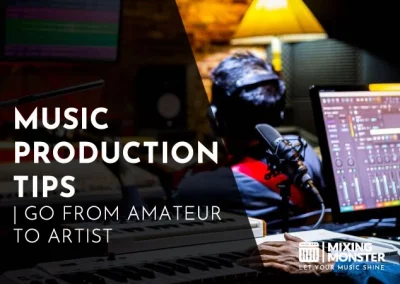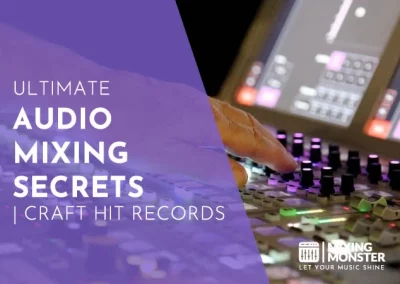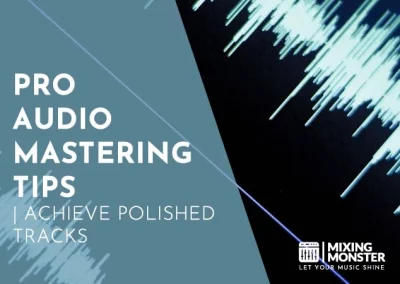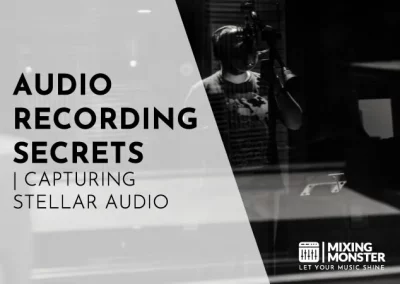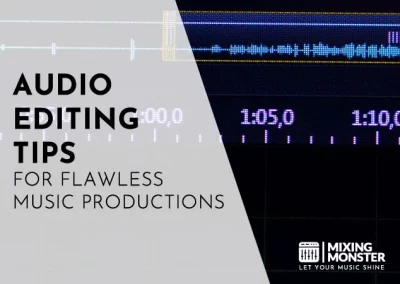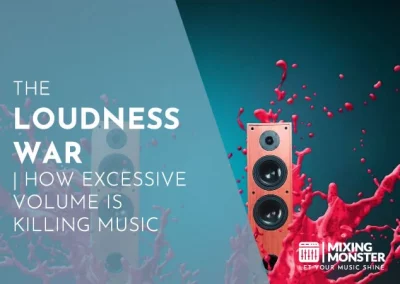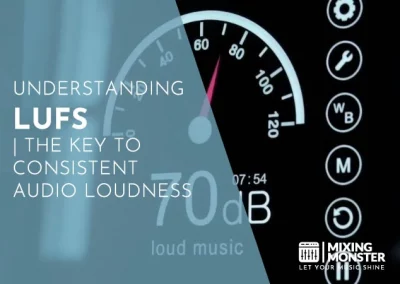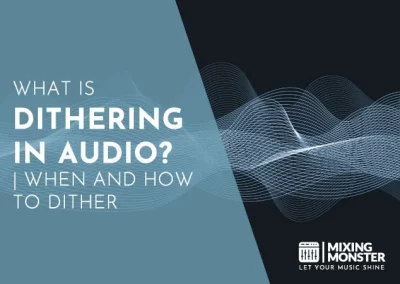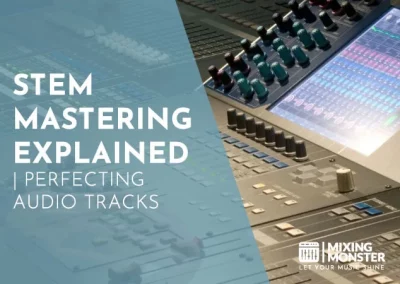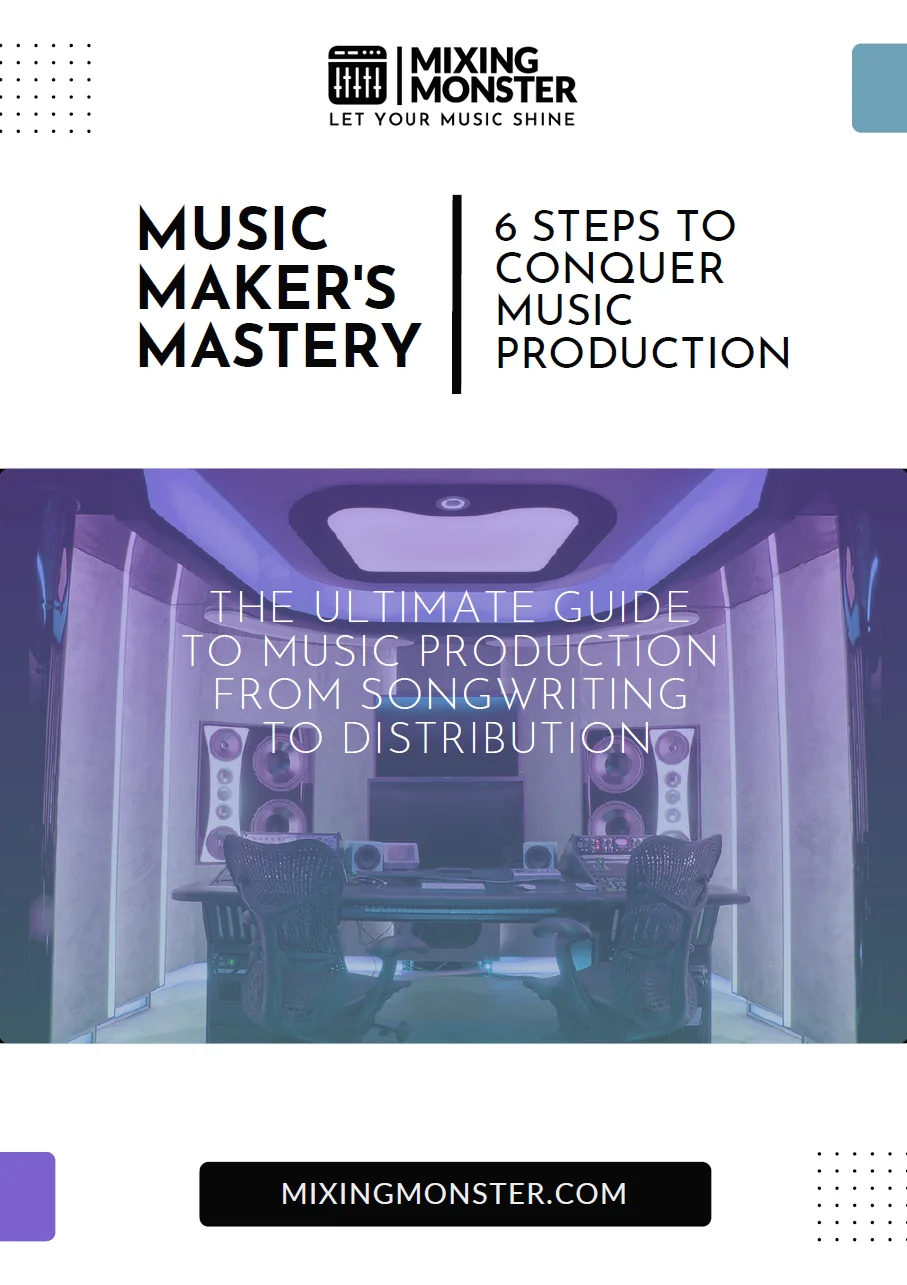Home > Blog > Mastering > Mastering Insights
So you heard of audio mastering before but you are wondering what the purpose of mastering a song really is? In this article, we will explain the importance of mastering and why you should consider mastering your music.
The purpose of mastering is to further process a mixed song in order to make a final product that is ready for commercial distribution. Mastering is the final step in audio production, which makes sure the audio track is ready to be listened to on any device.
Find out more about the benefits of audio mastering and the great necessity to master your song!
Table Of Contents
1. What Are The Benefits Of Mastering?
2. Is It Necessary To Master A Song?
3. How Much Does Mastering Improve A Song?
4. What Happens If You Do Not Master A Song?
5. Is Mastering More Important Than Mixing?
6. Is It Possible To Master Your Own Tracks?

1. What Are The Benefits Of Mastering?
Mastering is the final step in any audio production. The goal is to make a mix sound the way you want it to sound on all types of speakers and devices. It’s basically a final adjustment of your song to make it sound completely finished and ready to be listened to by the public. It makes sure the audio track sounds good on studio monitors, HiFi speakers, headphones, in your car, on your phone, on your friend’s system, etc.
In the hands of a professional engineer, mastering will achieve a wider, more detailed and controlled sound. It ensures playback of your song is correct across different systems and platforms.
EQ, compression, stereo enhancement and final limiting form the basic elements in mastering among multiple other surgical and highly specific adjustments. Balancing out industry standard and genre specific loudness as well as perfect tone while preserving a tasteful dynamic range is crucial.
When a song is mastered, it is put into a form that is ready to be distributed to the public: a high quality audio file in a suitable release format regarding modern commercial standards.
Professional Mastering Benefits:
- Audio Track Is Checked For Technical Issues
- Song Is Optimized For Any Device
- Mono Compatibility Is Guaranteed
- Song Sounds Clearer And Wider Without Phase Issues
- Frequency Spectrum Is Optimized (Genre Specific)
- Song Is Referenced To Industry Standard Tunes
- Optimal Loudness Is Achieved While Preserving Dynamics
- Song Is Balanced In An Album Composition
- Audio Track Is Edited And Formatted Correctly
2. Is It Necessary To Master A Song?
Many artists think mastering is not necessary or worth the time or money. This is one of the biggest mistakes a beginner can make in the audio production process. Not mastering your finished mix is comparable to building a house and refusing to put a roof on it.
Mastering is a crucial part of the audio production process. It can make or break a song. If you plan to release a song in any audio format, it is inevitable to have it mastered.
While the mixing process balances out individually recorded tracks, mastering processes the mixed stereo file and balances it in an album composition. It is an essential process all music that is due to be finalised must go through in order to meet the standards of release.
A professional engineer will ensure your music plays back correctly across all devices and focusses on enhancing the audio track while trying to eliminate technical “flaws” in the mix. Every professional audio production you hear today is processed by a seasoned mastering engineer.
3. How Much Does Mastering Improve A Song?
Before talking about the impact of mastering, you need to be aware of some basic concepts. Mastering a song is a very specific process. The process of optimizing all the audio elements of a song can be considered an art. Every mastering engineer uses specialized equipment and software to make sure the song sounds as good as possible, often in very creative ways.
Even though there are common techniques in mastering and standards to be met, there is no universal approach. In addition to that, a good mastering engineering often acts like a surgeon who is performing microsurgery. Every step and action he makes is subtle, thoughtful and based on experience.
Considering these aspects, it is hard to define a measurable scale when talking about “how much” mastering improves a song. When comparing a mixed song with its final mastered version, the most obvious difference is often perceived in loudness, as the mastered song is usually louder.
Although the loudness difference is very obvious, the sonic differences between a mixed song and its final mastered version are often more subtle, but nonetheless impactful as the actions taken most likely affect the whole audio track.
Last but not least, the improvements of mastering heavily depend on the quality of the initial recordings and the balance of the mix.
Basic Overview Of How Much Mastering Improves A Song:
4. What Happens If You Do Not Master A Song?
Too many artists fall at the final hurdle with poor quality mastering or even worse: they skip mastering of their music.
Again, the purpose of mastering a song is to give your track a professional, polished sound for distribution, that will stand out among the rest. Not mastering a song will be detrimental to the quality of your song.
Considering the benefits of mastering, which we discussed in point 1, you should already get an idea of what happens if you do not master your song. Let’s recap the mastering benefits list and reverse it!
Skipping Mastering Can Result In:
- Undetected Technical Issues, Clicks, Distortion
- Bad Translation On Different Devices
- Mono Compatibility Issues, “Collapsing” Of The Mix On Mono Speakers
- Bad Separation, Unclear And Thin Sound, Possible Phase Issues
- Deviated And Irritating Frequency Spectrum
- Unreferenced Audio Tracks
- Suboptimal Or Bad Loudness Values, Overcompression And Loss Of Dynamics
- Unbalanced Album Composition
- Incorrect Audio Formats

5. Is Mastering More Important Than Mixing?
Mastering can be a confusing process. It’s not the same thing as mixing. It’s not the same thing as editing. It’s a inevitable process that takes place after the song has been mixed and edited.
Mastering cannot replace audio mixing, at all. It also cannont “save” a badly mixed song. Mastering balances out a printed stereo file of an already perfectly mixed song, it doesn’t “create” the mix. A perfectly mastered, yet “bad” or mediocre music mix will still sound very unpleasing.
Mastering isn’t more important than mixing, just like mixing isn’t more important than mastering. Both processes are just different steps in the audio production. After its mixing phase is finished, an audio project will always be mastered.
6. Is It Possible To Master Your Own Tracks?
Mastering might be a complicated and it can be hard to wrap your head around what exactly it is supposed to do. Although mastering is typically done by a seasoned professional, it is possible for you to do it yourself.
According to many mastering engineers, you can train your ears like you can train anything else. Mastering can be learned and you can achieve solid results by yourself. Nonetheless, it takes some time and more importantly a huge amount of practise.
However, one of the biggest problem while mastering your own music always persists: the lack of a “second set of ears”. Spending a lot of time writing, recording and possibly mixing your own track, you lose sonic perspective and will most likely overlook crucial flaws in your mix.
Even though you can master your own music, consequently the best practise will always be to hire an experienced mastering engineer to process your song.

